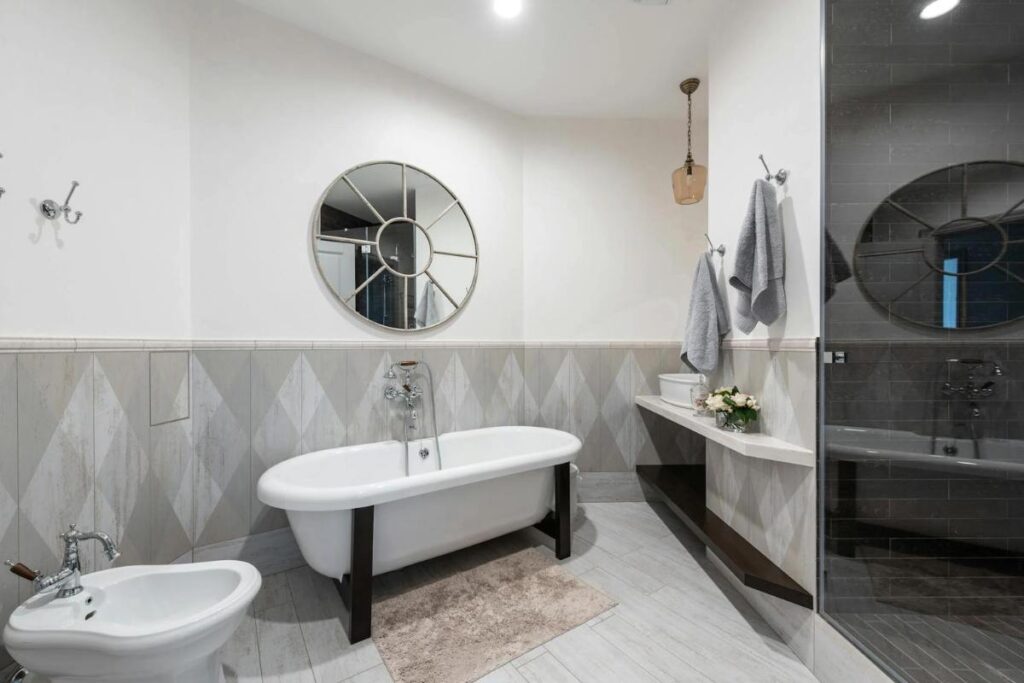Starting a home remodeling project is a thrilling endeavor that will improve your living area’s visual appeal and increase the value of your house. However, there are many obstacles in the way of completing a project from conception to completion, which can be avoided with careful planning. We will examine the seven essential elements that serve as the cornerstone of an effective home renovation plan in this blog post. We’ll examine the nuances of every topic, from landscaping to roofing, and offer advice and insights to help you get the most out of your home improvement project.
Roof Repair: Ensuring a Solid Overhead
One of the fundamental components of any home improvement strategy is addressing the condition of your roof. Your roof is not only a vital protective shield against the elements but also a key factor in the overall curb appeal of your home. Before diving into cosmetic upgrades, it’s crucial to assess and repair any existing damage to your roof. Roofs can endure wear and tear over time, leading to leaks, missing shingles, or structural issues. Enlist the expertise of professionals who provide repair service to maintain the integrity of your home. A timely intervention in this area not only prevents further damage but also extends the lifespan of your entire home.
Energy-Efficient Windows: Illuminating the Future
Windows plays a pivotal role in the energy efficiency and aesthetic appeal of your home. Upgrading to energy-efficient windows not only reduces utility costs but also enhances the overall comfort of your living space. Consider options such as double-pane windows with low-emissivity coatings to minimize heat transfer and UV radiation. These windows not only provide insulation but also contribute to a sustainable and eco-friendly home. Additionally, the aesthetic versatility of modern window designs allows you to seamlessly integrate them into the overall architecture of your home.
Kitchen Remodeling: The Heart of the Home
The kitchen is undeniably the heart of any home, making kitchen remodeling a crucial component of a comprehensive home improvement strategy. Beyond aesthetics, a well-designed kitchen improves functionality and increases the property’s market value. Start by evaluating your needs and preferences, considering factors like layout, storage, and appliances. Integrate smart technology for added convenience, and don’t overlook the importance of quality materials in cabinetry, countertops, and flooring. A thoughtfully planned kitchen remodel can transform your cooking space into a hub of comfort, efficiency, and style.
Bathroom Renovation: A Sanctuary of Serenity

A bathroom renovation goes beyond mere cosmetic upgrades, focusing on creating a sanctuary of serenity within your home. Start by addressing any plumbing or structural issues, ensuring a solid foundation for your renovation.
From there, explore design elements that align with your style, whether it’s a spa-inspired retreat or a sleek modern oasis. For those in need of detailed finishing work, caulking services Melbourne can ensure that every corner is perfectly sealed, contributing to the overall polished look of your renovation. Consider energy-efficient fixtures, eco-friendly materials, and ample storage to enhance functionality. The goal is to create a space that not only meets your practical needs but also serves as a haven for relaxation and rejuvenation.
Landscaping: Elevating Curb Appeal
The exterior of your home is the first impression visitors and passersby have, making landscaping a critical aspect of a successful home improvement strategy. Begin by assessing the current state of your landscaping and identifying areas that need attention. Enhance curb appeal with a well-maintained lawn, strategic planting, and outdoor lighting. Investing in quality hardscaping elements such as pathways, decks, or patios can extend your living space into the outdoors. Professional landscaping services can provide tailored solutions that align with your vision, ensuring a harmonious blend of aesthetics and functionality.
Efficient HVAC Systems: Mastering Climate Control
Effective heating, ventilation, and air conditioning (HVAC) systems are crucial for ensuring a comfortable and healthful indoor climate. Upgrading to energy-efficient HVAC systems not only reduces utility costs but also minimizes your ecological footprint. Regular maintenance and timely repairs are crucial to ensuring the longevity and optimal performance of these systems. Consider smart thermostats for precise climate control, and explore zoning options to customize temperatures in different areas of your home. A well-regulated indoor climate contributes to both the comfort and energy efficiency of your living space.
Smart Home Integration: The Future of Living
From security systems and lighting to entertainment and energy management, smart home integration provides convenience, efficiency, and peace of mind. Start by identifying areas where automation can enhance your daily life, such as smart locks, thermostats, and lighting controls. Integrating these features not only adds a contemporary touch to your home but also positions it for the future, where seamless connectivity and automation will continue to redefine the way we live.
From addressing roof repairs to integrating smart home features, each aspect contributes to the overall success of your project. By prioritizing functionality, aesthetics, and sustainability, you can create a living space that not only meets your current needs but also enhances the long-term value of your home.











